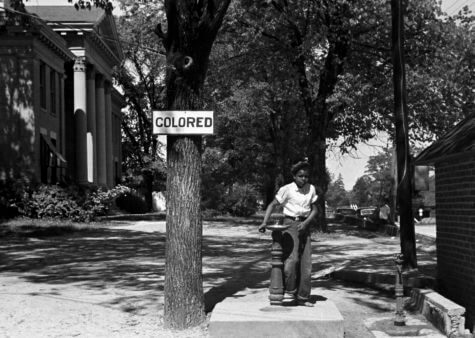COLUMBUS, Ohio — Historically, segregation has played a significant role in determining lifespan in the United States, a new study finds.
Researchers at Ohio State University looked at historical data from the state of North Carolina covering the years 1909 to 1975, finding that while segregated areas had higher mortality rates overall, certain demographics actually lived longer in such locales.

For instance, one of the study’s main findings was that during the period examined, some blacks actually lived longer in segregated environments.
“The study shows that the effects of segregation apply not only to the present, but also to the past,” says Trevor Logan, the study’s co-author in a university press release. “More importantly, we found that segregation was related to health outcomes in rural as well as urban areas.”
All in all, whites lived 10 years longer than blacks on average in the U.S. during the six-plus decades studied, but whether one lived in an urban or rural area had the ability to change this figure.
For blacks, living in an highly-segregated urban area — as opposed to one with an average level of segregation — was associated with an increase in lifespan: five years for African American females, and 10 years for black males.
While these outcomes were less pronounced for blacks living in segregated rural areas, they trended in the same direction.
Logan speculates that segregation could have helped blacks avoid infectious disease in the pre-antibiotic era.
“In a period with a lack of access to quality health care, especially for black people, less exposure between races could have had large, positive effects on black health,” he explains.
Meanwhile, whites in segregated areas lived shorter lives than their peers as a whole, although the opposite appears to have been true of whites living in segregated areas that were urban.
As for infant mortality, although blacks experienced higher rates than whites in the early-to-mid 20th century, segregation was not a cause of the disparity.
“Our results suggest that segregation mattered in rural areas, as well as urban areas,” Logan concludes. “And the effects of segregation were evident long before the Great Migration of African Americans to urban centers.”
The study’s findings were published in the journal Social Science and Medicine.

Of course many black people lived longer segregated during the segregation era. That was one reason for segregation laws — to lessen racial strife.
Whites lived shorter lives because everybody did till after the middle of the last century. You’re comparing apples to tangerines.
Actually, the reason for segregation laws was to increase and to perpetuate racial strife. When a person only knows what they have been told by others, or who may have even personally experienced a negative interaction with one or perhaps even a few persons from another demographic or when they listen to someone narrate what a third person has told them about something which their parents or grandparents claimed to have heard or experience, ignorance (which is the basis of prejudice – prejudging based upon suppositions, rather than facts) then that person is incapable of formulating an opinion based upon factual information.
There are too many variations among individuals, we all have different life experiences, unique experiences – even within families. Therefore, when people fall into the trap of LUMPING EVERY, or even MOST people into categories, they miss out on the richness of humanity which each culture within our world has to offer.
“White” people lived shorter lives during de jure segregation, for multiple reasons. Racism, being a mental illness, taxes the mental, spiritual and consequently, the physical well being. It takes an extraordinary amount of energy and effort to continue lying to oneself, and collectively as a group, about a contrived superiority based solely upon one’s physiognomy.
An interesting take on this is in a book about the Reconstruction era to early 1900s. For some time integration was the rule. The author, whose last name I think is MacArthur, points out that black and white men had interests in common (sports, work, etc.) but generally white women only knew black women as domestic help.
Though the author says she’s a feminist she credits white women in particular with wanting segregation more than most of the men and getting it enacted. Despite what we hear from some elements, women had political clout. I think the title is “Making the New Woman” or something similar. Sorry, my notes are packed up right now.
I doubt white people’s lives were overall shorter, but guess black people’s were longer than before.
ImI.searched.high and low for a book with that title, without success. Please send the title once you can acquire it. I’d be interested in reading the book.
Found! McArthur, Judith N. “Creating the New Woman”: University of Chicago Press, 1998.
Sorry I don’t have the ISBN number.
“White women accepted and perpetuated the Jim Crow system, voluntarily segregating their community building projects…” Page 88.
There are several quotes on that page of notes and I probably have another page from that volume. I went through reams of printouts locating it.
I needed to, since I’ve cited it a few times. I’ll create a file of my notes one day.
If you can find the book hopefully you’ll find the rest of what I haven’t yet. I believe I got it from a University of Chicago remnants catalog. Good luck with that.